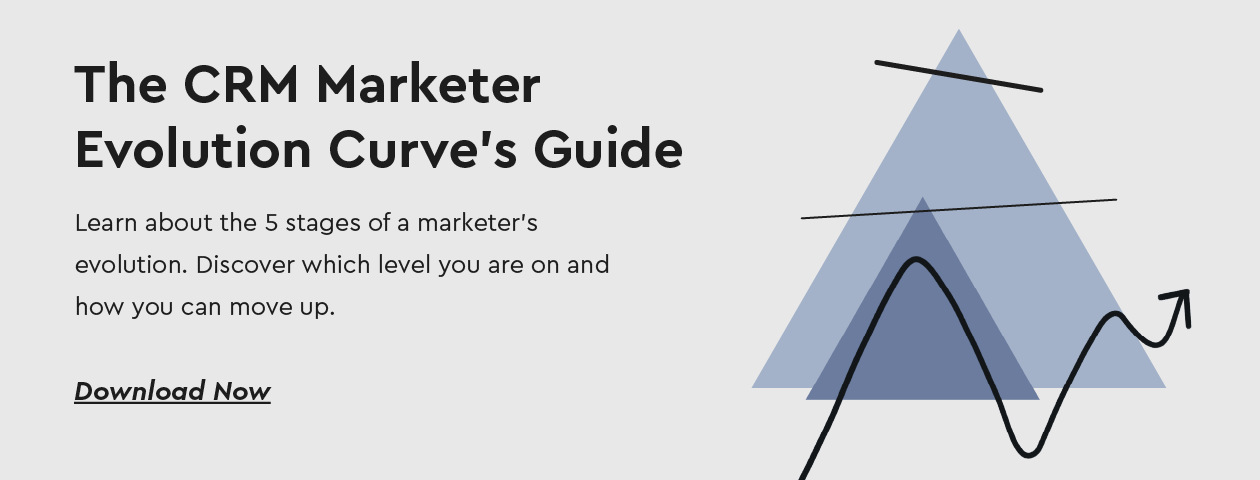What is Journey Orchestration?
Journey Orchestration helps marketers set goals and apply relevant customer insights for audience segmentation; it also helps them manage and plan the timing and sequencing of channels for multichannel marketing campaigns and journeys.
Why is Journey Orchestration important?
Journey orchestration is a pivotal strategy in modern marketing. It is important as it enables brands to seamlessly tailor personalized experiences across multiple touchpoints and channels. It helps brands nurture trust and loyalty and build long-lasting, healthy customer relationships.
By cohesively mapping the customer journey and strategically delivering the most relevant and personal communications, journey orchestration enhances engagement, drives conversions, and ensures consistency in brand messaging.
Furthermore, customer journey orchestration empowers marketers to focus on higher-value tasks while continuously refining strategies based on real-time data through automated processes and AI-driven insights.
The CRM Marketer evolution curve
The benefits of Journey Orchestration
Journey orchestration offers several benefits for businesses and customers alike, including:
- Personalized Customer Experiences: Tailoring interactions based on individual preferences and past behaviors leads to more relevant and engaging customer experiences.
- Optimized Customer Engagement: Marketers ensure consistent and impactful engagement throughout the entire lifecycle by mapping out and optimizing the customer journey across various touchpoints.
- Increased Conversion/Retention Rates: Understanding where customers are in their journey allows for targeted messaging and offers, increasing the likelihood of conversion and retention.
- Enhanced Customer Loyalty: Delivering seamless, personalized experiences fosters stronger customer connections, increasing customer trust and loyalty.
- Higher Revenue Growth: By improving customer satisfaction and loyalty, journey orchestration leads to increased business sales and bottom-line revenue.
- Streamlined Marketing Operations: Automating and optimizing marketing processes through journey orchestration leads to more efficient resource allocation and improves return on investment (ROI.)
In today’s competitive landscape, journey orchestration empowers marketers to deliver the right message to the right customer at the right time, ultimately driving business growth and success.

Examples of Journey Orchestration
Brands that seamlessly implement journey orchestration ensure a personalized and rich experience at every interaction. Here’s how it works:
- Tailored Welcome Journey: When a new customer registers an account, trigger a personalized welcome journey. This may include a series of emails introducing the customer to the brand, offering welcome promotions tailored to their interests, and helpful tips to maximize their experience.
- Predictive Product Recommendations: As customers browse products, smart AI engines analyze their behavior in real-time allowing brands to dynamically generate personalized product recommendations, seamlessly integrated into the website, mobile app, and marketing campaigns.
- Abandoned Cart Recovery: If a customer adds items to their cart but doesn’t complete the purchase, trigger an abandoned cart campaign. This includes a series of reminder emails with enticing offers and personalized retargeting ads on social media and search platforms, designed to recapture the customer’s interest, remind them about items left in their cart, and drive them back to complete their purchase.
- Post-Purchase Engagement: After a purchase, activate a post-purchase engagement journey. This includes a thank-you email, recommendations for related products based on the customer’s purchase history, and an offer on their next purchase. Additionally, trigger a customer satisfaction survey to gather feedback and insights for continuous improvement.
The CRM Marketer Evolution Curve’s Guide
Learn about the 5 stages of a marketer’s evolution. Discover which level you are on and how you can move up.
Journey Mapping vs. Journey Orchestration
Journey mapping involves analyzing customer touchpoints and interactions with a brand. It focuses on understanding the journey from the brand’s perspective. In contrast, journey orchestration starts with the customer and uses data-driven insights and automation to deliver personalized experiences tailored to each customer’s unique behaviors and preferences.
While journey mapping provides insights into the customer journey, journey orchestration actively manages and optimizes the journey in real-time, ensuring that the right message is delivered to the right customer at the right time.
Ultimately, journey mapping aims to understand the customer’s journey, while journey orchestration aims to actively shape and guide it to drive desired outcomes and maximize trust and loyalty.
Here are a few key differences between the two:
1. Journey Mapping
Definition: Journey Orchestration helps marketers set goals and apply relevant customer insights for audience segmentation; it also helps them manage and plan the timing and sequencing of channels for multichannel marketing campaigns and journeys.
Focus: Journey mapping focuses on gaining insight into the customer journey and understanding the various touchpoints and interactions that shape the overall customer experience. It helps brands visualize customers’ paths to meet their wants and needs.
Tools and Techniques: To gather insights into customer behavior and preferences, journey mapping includes customer surveys, interviews, and data analysis.
Benefits: Journey mapping provides businesses with a holistic view of the customer journey, enabling them to identify areas for optimization and improvement. It helps align internal stakeholders around the customer experience and fosters a customer-centric mindset.
2. Journey Orchestration
Definition: Customer journey orchestration allows marketers to plan and set goals, as well as manage the timing and sequence of interactions for new and in-progress multichannel campaigns. It involves actively managing and optimizing the customer journey in real-time, using data-driven insights and AI to deliver personalized and seamless experiences across multiple touchpoints.
Focus: Customer journey orchestration takes a customer-first approach. The goal is maximizing engagement and driving desired outcomes across the buyer’s journey on various channels and platforms. To successfully deliver a consistent and personalized experience at every touchpoint, brands require a robust customer journey orchestration strategy.
Tools and Techniques: Customer journey orchestration relies on advanced analytics, machine learning, and automation capabilities to analyze customer data in real-time and orchestrate personalized interactions across multiple channels. Combining marketer-led frameworks with next-generation AI, brands orchestrate personalized multichannel journeys that never crossfire or break.
Benefits: Journey orchestration enables businesses to deliver personalized messages that resonate with customers to drive higher engagement, conversion, and retention rates. Brands improve efficiency and achieve higher ROI by automating and optimizing customer journeys at scale.

Why is Optimove the #1 Company for Journey Orchestration?
Optimove ranked #1 in Journey Orchestration by Gartner in 2023. Positioned highest in execution and furthest in vision among Challengers in the 2023 Magic Quadrant for Multichannel Marketing Hubs. Optimove showcases its powerful capabilities in delivering top-tier personalization through a data-centric marketing approach.
Gartner’s recognition of Optimove’s Multichannel Marketing Hub for prescriptive prioritization, user experience enhancements, robust analytics, and AI support underscores the platform’s commitment to empowering marketers with AI-led multichannel journey orchestration and statistically credible multi-touch attribution.
With a proven track record of delivering exceptional ROI and efficiency, Optimove continues to revolutionize customer engagement and loyalty through its innovative marketing solutions.
Watch how Optimove clients discuss the platform’s powerful journey orchestration, personalization, predictive modeling, and segmentation capabilities here.
Learn more about Optimove’s journey orchestration capabilities or contact us to Request a Demo.
Frequently Asked Questions
Does journey orchestration differ from personalization?
Yes, journey orchestration differs from personalization, although they are closely related. Personalization focuses on tailoring individual experiences based on specific customer attributes or preferences, such as recommending products based on past purchases, addressing customers by their first name in emails, or sending them an offer on a product they’ll love or a bonus code on a game they enjoy playing.
On the other hand, journey orchestration involves actively managing and optimizing the entire customer journey in real-time, utilizing data-driven insights and automation to deliver personalized experiences across multiple touchpoints and channels. While personalization enhances individual interactions, journey orchestration ensures each customer receives the next-best-action, guiding them seamlessly from one touchpoint to the next based on their unique behaviors and preferences.
Will journey orchestration help me better understand my customers?
Yes, journey orchestration goes beyond merely understanding customer behaviors and preferences; it actively manages and optimizes the customer journey in real-time, providing valuable insights into how customers engage with your brand across various touchpoints and channels.
By leveraging data-driven insights and automation, journey orchestration enables brands to understand customer behaviors, preferences, and pain points better to tailor experiences that resonate with them at every stage of their journey. Additionally, journey orchestration facilitates continuous optimization and refinement of marketing strategies based on real-time data, to deliver deeper personalization.
How does journey orchestration impact marketing ROI?
Journey orchestration can significantly impact marketing ROI by driving higher engagement, conversion, and retention rates. By delivering hyper-personalized experiences tailored to each customer’s unique journey, journey orchestration drives repeat purchases and increases customer lifetime value.
Additionally, journey orchestration streamlines marketing operations and improves efficiency by automating repetitive tasks. With the ability to track and measure the effectiveness of each touchpoint along the customer journey, journey orchestration empowers marketers to identify areas for improvement to maximize ROI and drive growth.
Get a personalized tour of Optimove
Let us show you how to go from tens to hundreds of segments

